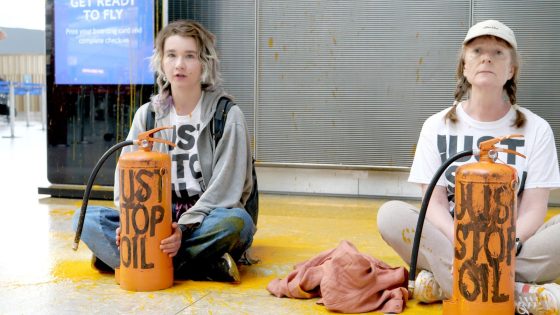When Splendour in the Grass fell over on Wednesday morning due to what organisers called “unexpected events”, it gave us an insight into what many in the industry had been warning for years. The Australian music industry is in significant strife.
Now, it’s just official. One of Australia’s longest-running and world-renowned festivals, attracting the likes of Kanye West in 2011 and Outkast in 2014, has sadly reached a point that may put it beyond revival. The organisers said it was “taking a year off”. Similarly, the last New Year’s Falls Festival, controlled by the same promoter, went the same way, expressing a need to “take a year off to rest, recover and recalibrate”.
Keep off the splendid grass: Splendour at Byron Bay has been cancelled.Credit: Edwina Pickles
Let’s cut through the spin. These once-beloved cultural icons, which many Australians cleared calendar space for and considered part of our musical fabric and identity, may be past the point of life support. It’s hard to see how they’ll come back and be viable in the long term amid a background of surging insurance premiums, exorbitant policing fees (particularly in NSW), and a generation that is now finding it tough to justify forking out north of $500 for a three-day camping ticket that is likely to end in a rain-soaked getaway, as we saw at the famed 2022 edition of Splendour.
The live music industry’s woes don’t begin and end with the cost-of-living crisis. The pandemic has only amplified the pressure on festivals to keep afloat amid significant financial headwinds across the arts sector. But afflictions arising from COVID are not exclusive to the Australian music industry.
Deficient line-up curation may be a factor for poor ticket sales in the short term. It’s hard to leave that out of the equation. But for Live Nation, which acquired majority ownership of Secret Sounds – the local promoter of Splendour and Falls – in 2016, the likely death sentence for these festivals is handed down by a multinational corporation that appears too culturally disconnected from an industry it claims to represent. Kylie Minogue, who was set to headline this year’s Splendour, is an Australian icon, but she isn’t the kind of artist who has drawn hundreds of thousands of punters to Byron Bay over the years.
Loading
Live Nation is a global conglomerate that merged with Ticketmaster in 2010 and boasts on its website that it is “the largest entertainment company in the world”. Its third-largest shareholder is Saudi Arabia’s Public Investment Fund, a sovereign wealth fund controlled by the nation’s Crown Prince and Prime Minister Mohammed bin Salman. It’s fascinating that Live Nation finds support from the Saudis, a kingdom that has historically labelled almost all forms of music as “haram” and, until recent years, had imposed a sweeping ban on it for more than four decades.
Live Nation’s acquisition of Secret Sounds was also leveraged by the promoter’s majority stake in Brisbane’s historic live music venue The Triffid, which then embarked on a journey to build one of the city’s premier music venues, the Fortitude Music Hall, which opened in 2019. The construction of more live music venues in uncertain times is hardly a concept many artists would oppose, but the corporate ownership and market consolidation is just one element that has many senior industry figures spooked over artist revenue and career sustainability.
Control of the venues means control of venue hire fees. Control of promoters means control over artist fees and ticket prices, and control of ticketing companies like Ticketmaster and Ticketek has meant that surcharges and ticket-delivery charges are now set by only a few major industry players. According to Paul Sloan, the founder of West Australian-based promoter Billions/Supersonic and booking agent for artists such as Nick Cave and Amyl and the Sniffers, the concentration of the local music industry is bad news for artists and music fans.
Source Agencies


